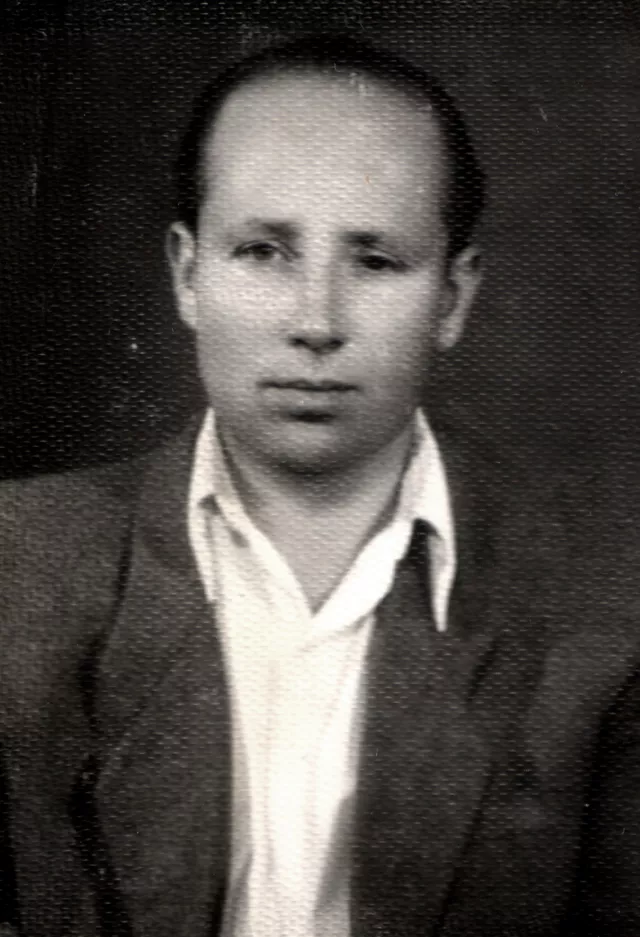Ladislav Roth
I before joining a work battalion. This photo was taken in Uzhgorod in 1942.
Since 1936 I worked as the waiter in Bercsenyi restaurant. In 1938 Subcarpathia became Hungarian again. In the first year of Hungarian rule there were no persecutions of Jews or attacks on synagogues, but in 1940 Jews began to fear going to synagogues. Young men with sticks waited for them in front of synagogues to beat them. Thank God, there were no bombs, but they beat Jews with sticks until they started bleeding.
It went on until 1942 when I was recruited to a work battalion. Jews were only recruited to work battalions. Guys of 1922 year of birth got together at the railway station where we boarded a train and headed to the frontier with Austria. Then we were separated into groups of 20 men in a battalion. In my battalion there were 10 men from Subcarpathia and 10 from Budapest. From there we were taken to Koszeg, a frontier town. We were accommodated in barracks. There were no beds or plank beds. We slept on straw on the floor. After breakfast we went to work. Our battalion worked clearing up a forest. We cut dry trees, removed branches and trunks making a road. In the afternoon we had a lunch break. They delivered a meal from the camp. We went back to the barrack before dinnertime. Hungarians supervised this camp.
We stayed in Koszeg for a month. In November we were taken by train to Uzhok [60 km from Uzhhorod, 625 km from Kiev], in Subcarpathia. In Uzhok we were accommodated in Ukrainian houses. We went to construct bunkers in the forest on a hill slope every day. We were to climb up about 800 meters to the work site.
There were no combat actions in the vicinity of Uzhok. Later, when Hungarian troops were crossing Uzhok, in February 1944 we were taken to Sobrance in 22 km from Uzhhorod. We were taken to work to other villages. In Skole [100 km from Uzhhorod, 680 km from Kiev] we made tunnels and later soldiers installed explosives in them. Then we were taken to Kosice to install concrete tubes in trenches and explosives were also put inside them. Then we did various work and dug trenches. We were slowly moving in the direction of Austria. Finally we reached Austria in August 1944. We also made trenches moving across Austria staying overnight wherever guarded by Hungarian gendarmes. In October 1944 we were transferred under the German command. It happened in Austria near the Alps. Our guards were young Germans from the Hitlerjugend. Their commanding officer was from the SS.
One day American planes flew by. We came to Mauthausen concentration camp. We stayed there few days. The Soviet army was advancing on one side and American troops were coming from the other. Groups of 500 people began to be taken to Gunskirchen concentration camp. So we lived few months. We didn't know what day or month it was. There were air raids of American and Soviet air forces. Our guards lived in separate barrack quarters. The planes bombed their barracks, but not a single bomb fell on our barracks. During air raids guards were hiding in the forest, but we were not allowed to leave our barracks. Finally the morning of 6th May 1945 came when we woke up in the morning and didn't hear any guards' voices or dogs barking. It was unusually quiet in the camp. Few hours later American soldiers came to the camp. We ran out of barracks and began to hug them. Now I understand that such passionate welcome was an ordeal for Americans: we hadn't washed or changed underwear or clothes for a long time, but we didn't think about it at that time. Our rescue came. Americans told us that the war was over and that fascist Germany capitulated.












